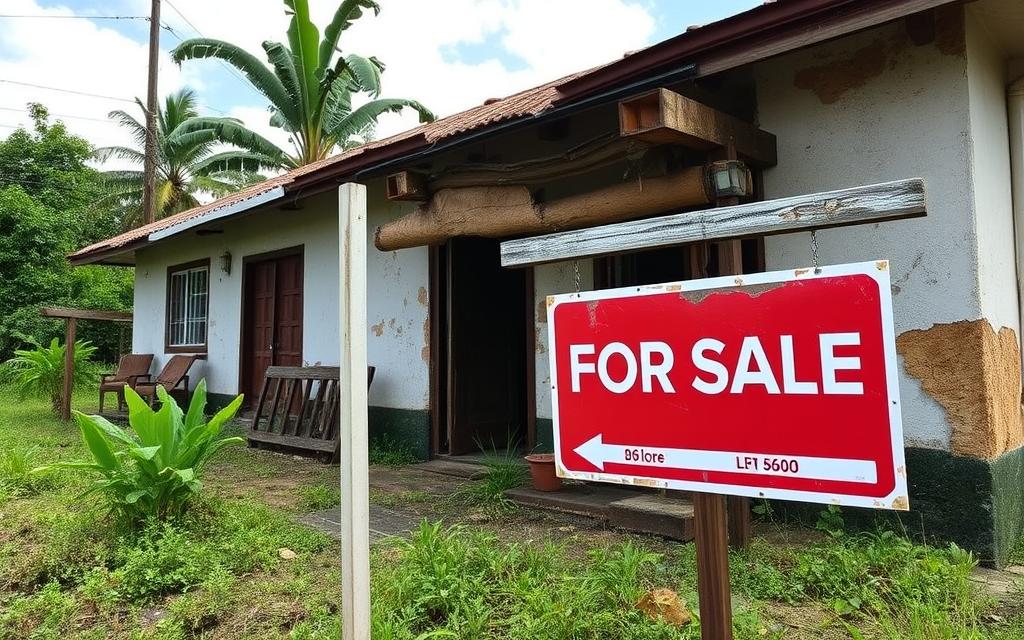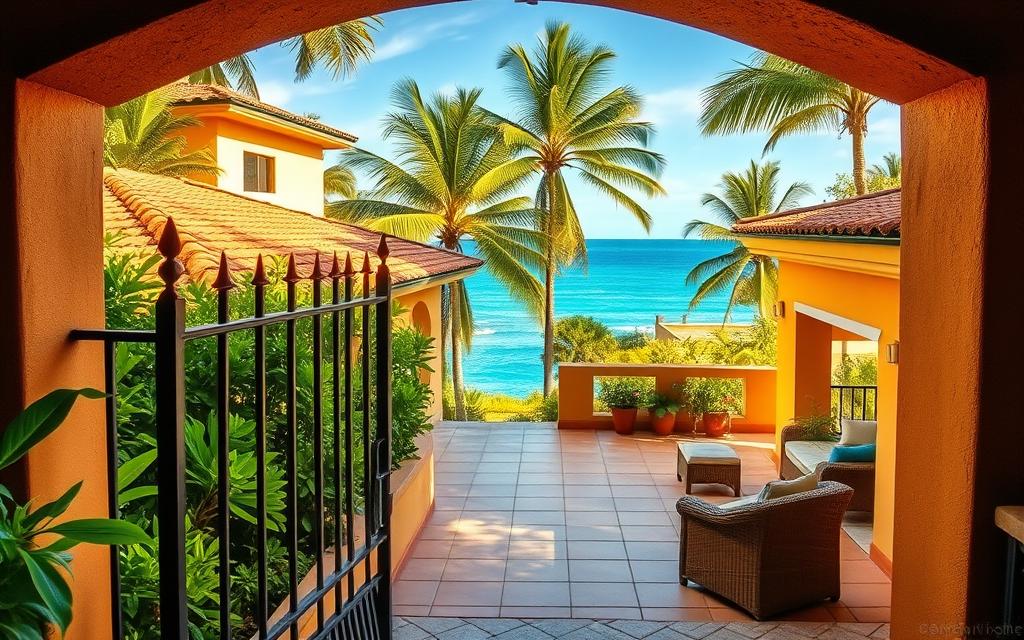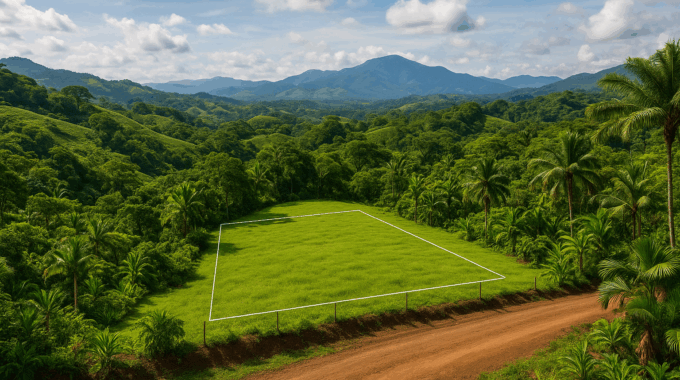Discover how to start Buying Property in Costa Rica Without Bank Financing. We offer alternative financing options with competitive rates and flexible terms.

Distressed Property Loans in Costa Rica – Competitive Rates & Terms
Investing in Costa Rica’s real estate market can be a lucrative opportunity, but navigating the country’s financing landscape can be challenging. Traditional banks often present significant hurdles, including extensive documentation requirements and high fees.
At GAP Equity Loans, we offer a compelling alternative. We connect borrowers with private lenders who provide competitive interest rates, flexible terms, and faster approval processes. Our solutions cater to the unique needs of international investors looking to capitalize on Costa Rica’s growing property market.
By using your property as collateral, you can access significant funds with easier qualification. We understand the challenges and opportunities in Costa Rica’s real estate market, providing tailored financing solutions that traditional banks cannot match.
Understanding Distressed Property Loans in Costa Rica
Distressed property loans in Costa Rica present a complex yet potentially rewarding investment opportunity. We will explore the intricacies of these loans, including what qualifies as a distressed property and the unique aspects of Costa Rica’s real estate financing landscape.
What Qualifies as a Distressed Property in Costa Rica
In Costa Rica, distressed properties typically include foreclosed properties, known locally as “remate,” properties with delinquent tax payments, properties requiring significant repairs, or those being sold under financial duress by owners.
Understanding the condition of these properties is crucial, as foreclosed homes are often left in poor condition with fixtures, appliances, and even structural elements removed by previous owners.
The Unique Costa Rican Real Estate Financing Landscape
The Costa Rican real estate financing landscape differs significantly from that in the United States and Canada, with traditional banks being extremely conservative in their lending practices, especially to foreign nationals.
Finding distressed properties often requires direct contact with banks, knowledge of Spanish, and an understanding of local market conditions that many foreign investors lack without proper guidance.
- Unlike in North America, foreclosed properties in Costa Rica are rarely listed with real estate agents.
- The unique legal framework governing property ownership and financing in Costa Rica creates both challenges and opportunities for investors.
Why Traditional Banks May Not Be Your Best Option
When considering a property investment in Costa Rica, it’s essential to understand the challenges associated with traditional bank financing. We have found that most foreigners are deterred from pursuing loans due to the extensive documentation required and the associated costs.

Traditional banks in Costa Rica present significant hurdles for foreign borrowers. One of the primary challenges is the requirement for permanent residency status before a loan application is even considered. This stringent requirement, coupled with the extensive documentation needed, including financial records and background checks, can be overwhelming.
Challenges for Foreign Borrowers with Costa Rican Banks
For foreign investors, the process of securing a loan from a Costa Rican bank is often marred by inefficiency and bureaucracy. The approval process can take months, and many applications are ultimately rejected. This lengthy and uncertain process can be a significant deterrent for potential borrowers.
- Extensive documentation requirements, including authenticated and translated paperwork
- Requirement for permanent residency status for loan consideration
- Inefficient and bureaucratic banking processes
High Fees and Lengthy Approval Processes
The financial implications of borrowing from traditional Costa Rican banks are also a significant concern. Interest rates are typically 3-5% higher than those in North America, making financing more expensive. Additionally, closing costs can be as high as 3% of the loan amount, further increasing the financial burden.
- High interest rates compared to North American loans
- Significant closing costs, including additional fees
- Lengthy approval processes that can take months
Given these challenges, many foreign investors are now seeking alternative financing options. At GAP Equity Loans, we offer hard money loans for foreigners in Costa, providing a more streamlined and efficient financing solution for property investments.
Benefits of Private Lender Financing for Distressed Properties
When it comes to financing distressed properties in Costa Rica, private lenders offer a compelling alternative to traditional banking institutions. We connect borrowers with private investors and lenders, providing competitive rates, lower fees, and flexible financing options compared to traditional banks.
Competitive Interest Rates Compared to Traditional Banks
One of the significant advantages of working with private lenders for distressed property loans in Costa Rica is the competitive interest rates they offer. Unlike traditional banks, private lenders can provide rates that save borrowers thousands of dollars over the life of the loan. This is particularly beneficial in the Costa Rican real estate market, where distressed properties can be a lucrative investment opportunity.
Flexible Terms and Qualification Requirements
Private lenders in Costa Rica work with foreign investors based on the property’s value and the borrower’s financial stability, making qualification much more accessible. Unlike banks that require permanent residency, private lenders offer flexible loan terms tailored to the specific needs of the borrower and the property, including options for interest-only periods and customized repayment schedules.

Faster Approval and Funding Process
The approval process with private lenders typically takes days or weeks rather than months, allowing investors to move quickly on distressed property opportunities before they disappear. With streamlined documentation requirements focusing on the property’s value and the borrower’s ability to repay, private lenders provide a faster and more efficient financing solution for investors in Costa Rica’s real estate market.
By choosing private lender financing, investors can capitalize on distressed property opportunities in Costa Rica with competitive interest rates, flexible terms, and a faster approval process. We simplify the process, helping hardworking individuals secure the financing needed to achieve their investment property goals without unnecessary hurdles.
How to Qualify for a Distressed Property Loan in Costa Rica
Qualifying for a distressed property loan in Costa Rica involves a straightforward process when you understand the requirements. Private lenders in Costa Rica offer financing options for distressed properties with competitive rates and terms. To navigate this process effectively, it’s essential to understand the documentation and eligibility criteria required by lenders.
Required Documentation and Eligibility Criteria
To qualify for a distressed property loan, you will need to provide specific documentation, including proof of income, identification documents, and detailed information about the property being purchased. Private lenders evaluate loan applications based on the property’s value and condition, rather than focusing solely on the borrower’s credit history or residency status. For more information on the topics related to distressed property loans, you can visit our resource page.
- Proof of income and financial statements
- Identification documents, such as a passport
- Detailed property information, including its current condition and potential for renovation
Property Valuation and Loan-to-Value Considerations
Property valuation is a critical step in the qualification process for distressed property loans. Experienced appraisers assess the property’s current condition and its potential value after improvements. Loan-to-value (LTV) ratios are also crucial, with most private lenders offering loans up to 50-70% of the property’s appraised value.

Credit Requirements for Foreign Investors
Foreign investors should be prepared to provide financial statements, proof of funds, and sometimes references. While credit requirements are less stringent than those of traditional banks, understanding the legal framework governing mortgages in Costa Rica is beneficial. The mortgage contract, regulated by the Civil Code of Costa Rica, establishes an encumbrance against the property, securing the lender’s interest.
GAP Equity Loans: Your Costa Rican Financing Solution

GAP Equity Loans offers a tailored financing solution for investors looking to capitalize on distressed properties in Costa Rica. With a deep understanding of the local real estate market, we provide financing options that cater to various investment needs.
Loan Amounts and Terms Available
We offer loan amounts ranging from $50,000 to $1,000,000, with flexible terms that span from 6 months to 3 years. This flexibility allows borrowers to structure their financing according to their investment strategy and financial situation.
Interest Rate Structure and Factors
Interest rates start at 12% and vary based on several factors, including the loan-to-value ratio (LTV), property condition, location, and the borrower’s financial profile. Our team works closely with borrowers to determine the most suitable interest rate for their specific circumstances.
Application Process and Timeline
The application process with GAP Equity Loans is streamlined and efficient, typically taking 1-2 weeks from initial application to funding. We connect borrowers directly with private investors who understand the Costa Rican real estate market, eliminating unnecessary intermediaries and reducing costs. Our team conducts thorough property valuations to ensure accurate assessments of distressed properties, considering both their current condition and potential value after improvements.
At GAP Equity Loans, we pride ourselves on providing personalized service throughout the application process. Our dedicated professionals guide borrowers through each step, from initial inquiry to final funding, ensuring a smooth and hassle-free experience.
Using Your Costa Rican Property as Collateral
For investors in Costa Rica, using property as collateral can provide access to significant funds. This approach simplifies the loan acquisition process, as the property serves as security for the lender. By leveraging your Costa Rican property, you can secure financing with more favorable terms compared to unsecured loans.

How Home Equity Loans Work in Costa Rica
Home equity loans in Costa Rica function by placing a lien on your property, allowing you to borrow against the equity you’ve built. This process involves a mortgage contract regulated by the Civil Code of Costa Rica. The lender gains a security interest in the property, which can be foreclosed upon in case of default. Property valuation plays a crucial role in determining the loan amount, with lenders typically offering up to 50-70% of the property’s appraised value.
Using your Costa Rican property as collateral for a home equity loan provides access to significant funds with simpler qualification requirements. The loan amount is determined based on the property’s value, and the loan terms are generally more favorable due to the reduced risk for lenders.
Legal Protections for Borrowers and Lenders
The legal framework for secured loans in Costa Rica provides robust protections for both borrowers and lenders. Costa Rican law establishes clear foreclosure processes that must be followed in the event of default, including judicial oversight to ensure fair treatment for all parties. The mortgage contract creates a security interest that gives lenders confidence to provide financing while giving borrowers access to needed funds without selling their property.
For more information on strategies to avoid foreclosure in Costa Rica, you can visit GAP Equity Loans. This resource provides valuable insights into managing mortgage obligations and navigating the legal landscape in Costa Rica.
Alternative Financing Options for Distressed Properties
Investors looking to acquire distressed properties in Costa Rica have several alternative financing options at their disposal. These alternatives offer flexibility and innovative ways to secure funding for property investments.
One such option is owner financing, where the seller agrees to carry a mortgage or legal trust against the property until the buyer pays off the balance. This method has become increasingly common, with approximately 20% of real estate transactions in Costa Rica involving some form of seller carryback financing.
Owner Financing and Seller Carryback Options
With owner financing, the buyer becomes the legal owner of the property, while the seller maintains a security interest until the loan is repaid. This arrangement provides protection for both parties, as the seller is assured of receiving payment, and the buyer is guaranteed that the lien will be removed upon full payment.
Self-Directed IRAs for Property Investment
Another financing option is using a Self-Directed IRA, which allows investors to use retirement funds for property investments in Costa Rica. Converting a traditional IRA or 401(k) to a self-directed account is a relatively straightforward process, typically taking about 30 days.
Equity Lines of Credit from Your Home Country
Tapping into the equity of a property in your home country is another viable financing option. Many investors obtain an equity line of credit from their bank back home, taking advantage of lower interest rates and rising home values to fund their Costa Rican property investments.
These alternative financing options provide greater flexibility in terms of down payment requirements, interest rates, and repayment schedules compared to traditional mortgage loans. Working with experienced professionals who understand both Costa Rican real estate law and international financing options is essential when pursuing these alternative strategies.
Common Pitfalls to Avoid When Financing Distressed Properties
When financing distressed properties in Costa Rica, understanding the potential pitfalls can make the difference between a successful investment and a costly failure. We need to know the intricacies of the local real estate market and the specific challenges associated with distressed properties.
Property Condition Assessment Importance
Thorough property condition assessments are crucial when purchasing distressed properties in Costa Rica. Foreclosed homeowners often remove fixtures, appliances, and even structural elements before vacating, leaving the property in a potentially disastrous state. We must inspect the property thoroughly to avoid unexpected renovation costs.
Many investors underestimate the condition of distressed properties, assuming they can renovate at a low cost. However, the reality is that these properties often require significant repairs, which can quickly escalate expenses.
Understanding Foreclosure Processes in Costa Rica
The foreclosure process in Costa Rica differs significantly from that in North America, involving lengthy court proceedings before eviction. Understanding this process is essential for investors to navigate the market effectively.
Costa Rica’s legal system requires patience and persistence, as the foreclosure process can be slow and unpredictable. We must be prepared for the time and legal complexities involved.
Legal Considerations for Foreign Investors
Foreign investors must navigate specific legal considerations when financing distressed properties in Costa Rica. This includes understanding restrictions on certain coastal properties and the importance of proper title searches and due diligence.
Working with experienced local professionals, including attorneys specializing in real estate transactions for foreigners, can help avoid costly mistakes and legal complications. We should prioritize legal guidance to ensure compliance with local regulations.
To avoid common pitfalls, we must also be realistic about timing expectations. Closing on distressed properties and completing necessary renovations often takes longer in Costa Rica than in North America due to differences in construction practices and permit processes.
- Conduct thorough property inspections to assess the condition and potential renovation costs.
- Understand the local foreclosure process and its implications for investment.
- Navigate legal considerations specific to foreign investors.
- Work with local professionals to avoid costly mistakes.
- Be realistic about the time required for renovations and legal processes.
Conclusion: Securing Your Costa Rican Investment with the Right Financing
With the right financing, investors can unlock the full potential of Costa Rica’s distressed property market, turning challenges into opportunities. Navigating the financing landscape for distressed properties in Costa Rica requires understanding the unique challenges and opportunities that exist in this growing real estate market.
While traditional banks present significant hurdles for foreign investors, private lenders like GAP Equity Loans offer accessible, flexible financing solutions tailored to the needs of international buyers. Using your Costa Rican property as collateral provides a powerful way to access funds for renovations, additional investments, or other financial needs without selling your valuable real estate.
Alternative financing options, including owner financing, self-directed IRAs, and home equity lines of credit from your home country, expand the possibilities for investing in Costa Rican distressed properties. At GAP Equity Loans, we simplify the financing process by connecting borrowers with private investors who understand the Costa Rican market, offering competitive rates from 12% and loan amounts from $50,000 to $1,000,000.
To discuss how we can help you secure the financing needed for your Costa Rican investment property, contact us today at www.gapequityloans.com, via WhatsApp at +(506)-4001-6413, or by calling our USA/Canada line at (855)-562-6427.
Article by Glenn Tellier (Founder of CRIE and Grupo Gap)



